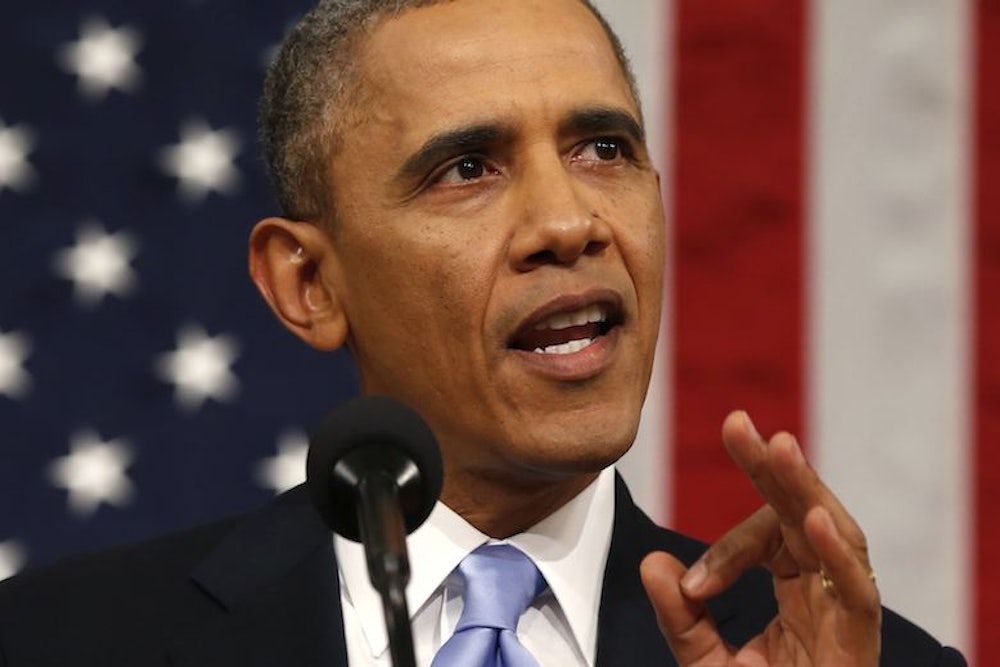My attention wandered through much of President Barack Obama’s State of the Union speech, but I perked up when I heard Obama say, “Let me be clear: if this Congress sends me a new sanctions bill now that threatens to derail these talks [with Iran], I will veto it.” That is something the President can do. And it’s very important that he made this threat.
Obama and the Democrats are not going to get most of their domestic agenda through the Republican House of Representatives, but the President and the Secretary of State have a chance to score a breakthrough in negotiations with Iran. If they, along with France, the UK, Germany, Russia and China, can secure a lasting agreement with Iran that limits Iran’s nuclear capacity to civilian uses, they will have prevented a nuclear arms race in the combustible Middle East and will have put American relations with Iran, a major player in the region, on a new footing.
But 43 Republicans and 16 Democrats have signed onto a new Iran sanctions bill, backed by the American Israel Public Affairs Committee, that could potentially derail these negotiations. It would introduce new requirements for a final nuclear weapons agreement—requirements that the U.S., Iran and the five signatories to the interim agreement have already ruled out, including a bar on enriching uranium for a civilian nuclear program. It would also add entirely new requirements bearing on missile development and Iran’s support for Hezbollah. And, incredibly, it would commit the United States to providing military support to Israel in the event it is “compelled” to take military action against Iran. California Senator Dianne Feinstein said of this provision, “While I recognize and share Israel’s concern, we cannot let Israel determine when and where the United States goes to war.” (Edward Levine of the Center for Arms Control and Non-Proliferation has provided an excellent analysis of the bill’s glaring faults.)
If these negtoations with Iran fail, the United States will be left with very unsatisfactory alternatives: use military force to stop Iran, which might only delay Iran’s acquisition of nuclear weapons, and will potentially inflame the region in a new war, or allow Iran to go ahead and hope to contain Iran as we have contained other potentially hostile nuclear powers. Obama may not be able to secure authorization for the first alternative—he couldn’t get Congress or the public to agree to undertake a much more modest operation against Syria’s chemical weapons facilities—and if he opts for the second, he will leave open the possibility of regional proliferation or of Israel going to war against Iran. It’s in America’s interest—and, incidentally, Israel’s as well—to allow the current negotiations to take their course—without malignant interference from Congress and AIPAC. I applaud the President for threatening to veto the Iran sanctions bill.
